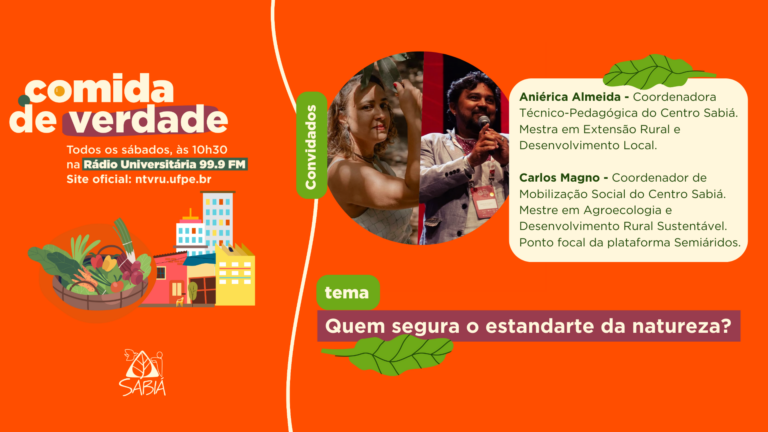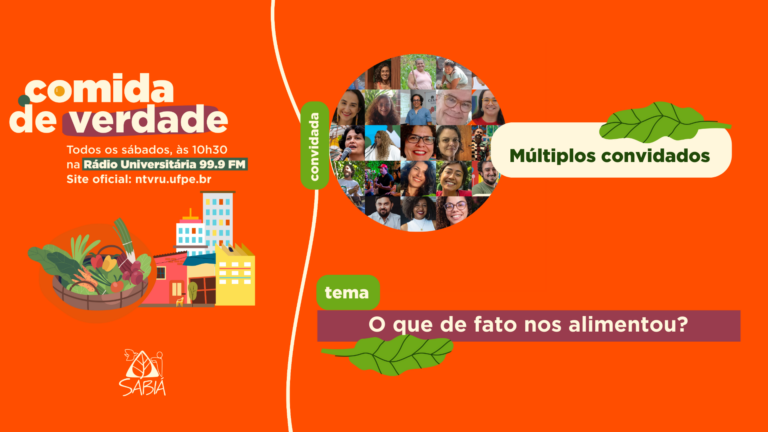Sabiá Center team visits agroecological experiences in Greater Recife
The moment of Planning, Monitoring and Evaluation of the Sabiá Center team took place in a celebratory atmosphere.
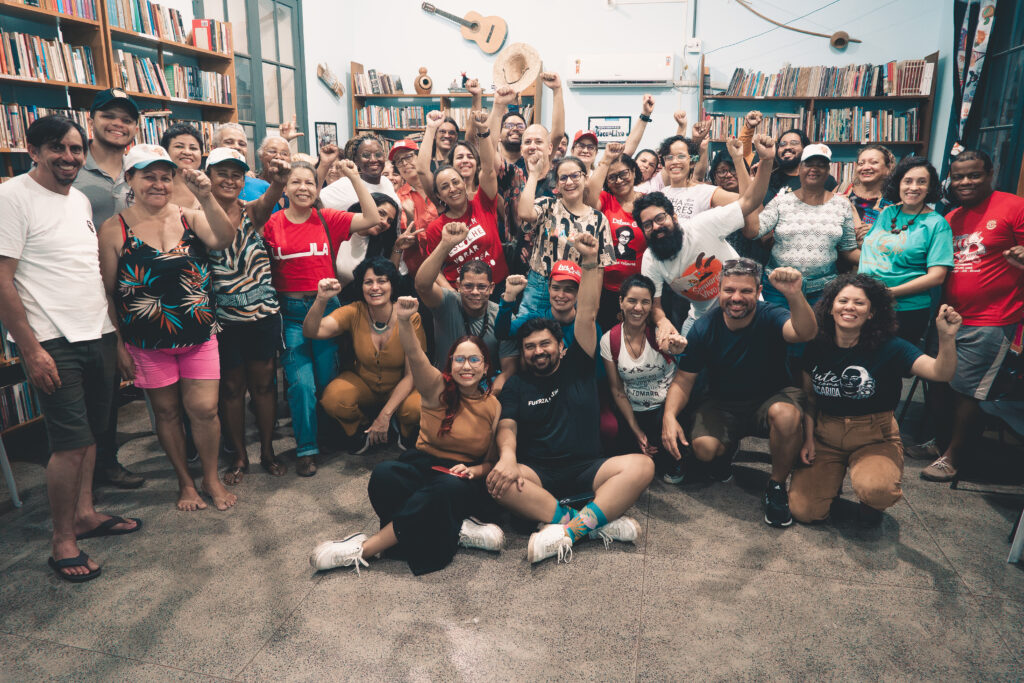
Every year, our team, from all territories: Sertão do Pajeú, Agreste, Zona da Mata Sul and Região Metropolitana, meets to carry out the PMA – Planning, Monitoring and Evaluation, which takes place at the end of the first semester, and also at the end of the year. But 2023 brought a different context: our 30th birthday. Thus, in a celebratory character, last Thursday (27), all the birds of this nest visited the first Agroforestry of Pernambuco, in Abreu e Lima and the experience of Urban Agriculture in the popular Agroecological Garden Dandara, in the neighborhood of Peixinhos, both in the Metropolitan Region of Recife.
In addition to the current team, including directors and collaborators, two of the founding partners, Marcos Figueiredo and Flávio Duarte, participated. The young peasant and agroecology student, Tatiane Faustino, also participated in the activities, representing the Commission of Young Multipliers of Agroecology – CJMA.
In the morning, we visited the property of Dona Lenir, companion of Jones Severino (in memory), the first farmer assisted by Centro Sabiá. It is there, in Abreu e Lima, at Sítio São João of Lenir and Jones, where the first Agroforestry System of Pernambuco is located. Producing in an agroecological way, since 1994, the family sells products benefited by the production at the Agroecological Fair of Graces. Dona Lenir, together with Marcos Figueiredo and Flávio Duarte, who participated in the implementation of the system, told about the experience of 29 years, until then.
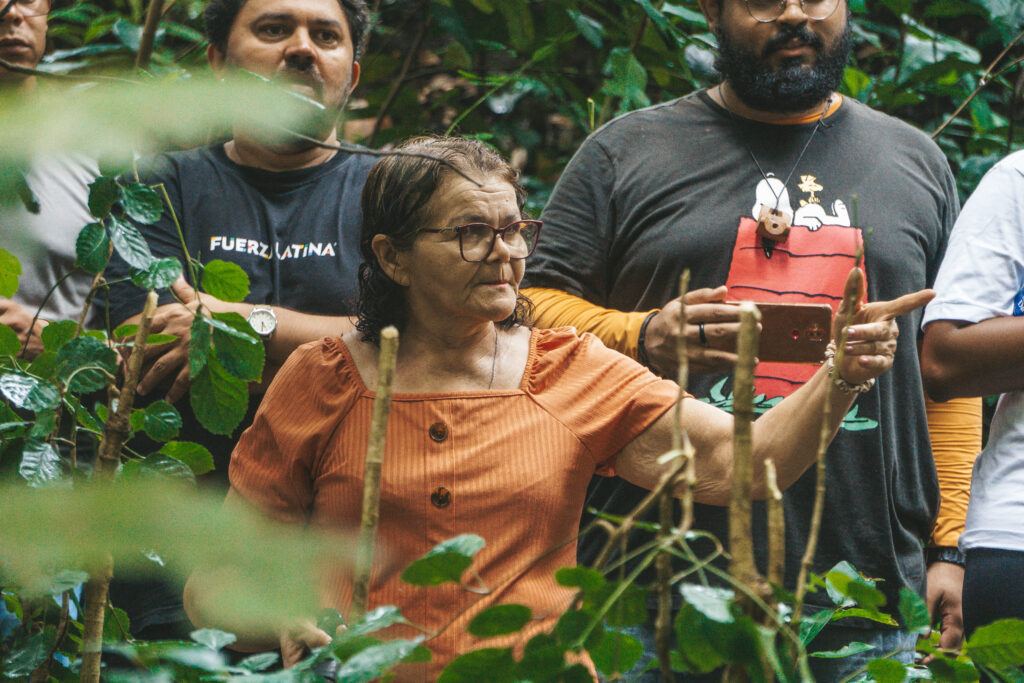
In the afternoon, it was time to get to know an urban experience, on the outskirts of the city of Recife. Horta Dandara, which emerged in 2020 during a critical moment of the Covid-19 pandemic, is resisting and producing real food. The Horta, formed mostly by women, is located in a space that faces many challenges: the Peixinhos Hatchery. A complex, where a former slaughterhouse used to function, has become a space for cultural production by and for the population. However, without attention from the public authorities, it faces challenges for its structuring and full utilization. We listened to the history of the region, talked about the challenges, but also saw how much the garden has evolved in these years. Listening to urban women farmers, learning about what is planted, what is intended to be done and the benefits experienced by women farmers so far.
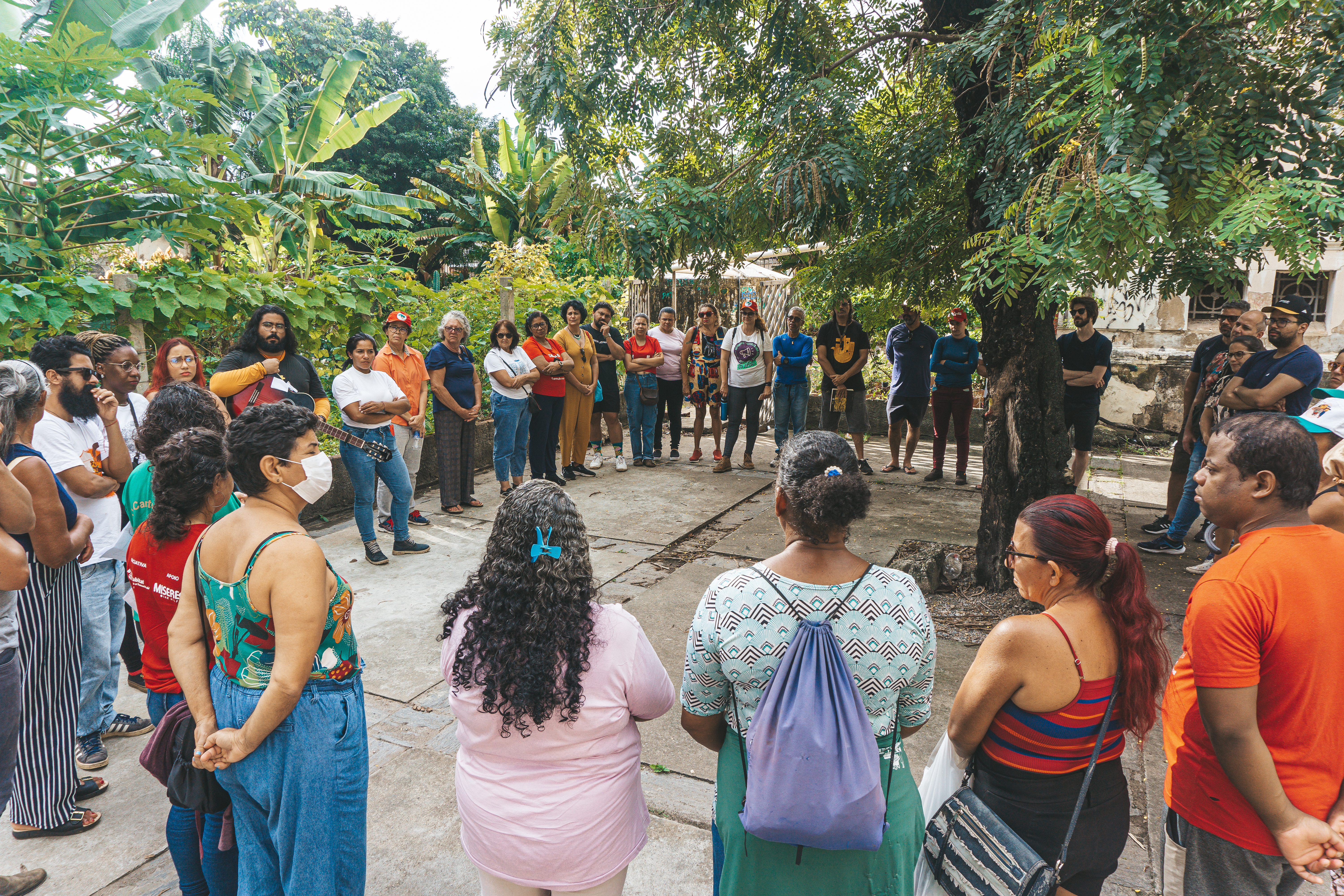
We ended the day in a very powerful dialog about the perceptions of the differences and similarities of the two spaces visited, and certainly, with the whole team integrated into the work done on a daily basis, which transforms so many lives.
Nothing found.



